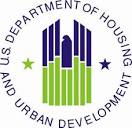HUD KICKS OFF FAIR HOUSING MONTH 2016 BY LAUNCHING NATIONAL MEDIA CAMPAIGN THAT DEPICTS SHARED OPPORTUNITY FOR ALL
- At April 01, 2016
- By fhfla
- In News
 0
0
WASHINGTON – The U.S. Department of Housing and Urban Development (HUD) today kicked off Fair Housing Month 2016 with the launch of a new national media campaign that helps the public to envision what communities with shared opportunity for all might look like. The new campaign is designed to further educate the public about their housing rights and the ideals behind HUD’s new Affirmatively Furthering Fair Housing (AFFH) initiative.
The campaign, which was developed in partnership with the National Fair Housing Alliance (NFHA), will include print Public Service Announcements (PSAs) in various languages, television PSAs in English and Spanish, online videos, and social media outreach. The campaign will run throughout 2016, and comes as the nation celebrates the 48th anniversary of the Fair Housing Act, the landmark law that was passed one week after the assassination of Dr. Martin Luther King Jr. in April 1968.
Every April, HUD, local communities, fair housing advocates, and fair housing organizations across the country commemorate Fair Housing Month by hosting a variety of activities that enhance Americans’ awareness of their fair housing rights, highlight HUD’s fair housing enforcement efforts, and emphasize the importance of ending housing discrimination.
“A core belief of our values as Americans is the idea that every person deserves a fair chance to secure safe and stable housing,” said HUD Secretary Julián Castro. “Your race, how you get around, the size of your family, whether you come from another country, if you are a man or a woman, or whatever your religious beliefs are should never hinder your housing goals. I am proud of the work our fair housing staff does every day in conjunction with our state and local partners to ensure that everyone’s fair housing rights are honored.”
Through an array of enforcement activities, fair housing policy initiatives, and education and outreach efforts, HUD’s Office of Fair Housing and Equal Opportunity continues to take action against individuals and housing providers that discriminate. Last year, HUD and its Fair Housing Assistance Program partner agencies received 8,293 complaints alleging discrimination based on one or more of the Fair Housing Act’s seven protected classes: race, color, national origin, religion, sex, familial status, and disability. During that period, the categories with the highest number of complaints were disability and race, respectively. HUD also focused on lending discrimination, as well as various forms of discrimination faced by women, families with children, and LGBT persons.
In particular, the new media campaign reinforces the ideals behind the Affirmatively Furthering Fair Housing rule, which provides communities that receive HUD funding with the tools and support needed to meet their fair housing planning obligations. The final AFFH rule also provides HUD program participants with guidelines and the data they need to meet their fair housing planning obligations. Since the Fair Housing Act first became law, HUD funding recipients have been obligated to reduce barriers to housing choice and to promote equal access to opportunity, including economic opportunity.
“Nearly 50 years after it was passed, the Fair Housing Act remains a powerful tool to ensure housing providers give every person an equal chance to find the home that is right for them, without prejudice or discrimination,” said Gustavo Velasquez, HUD Assistant Secretary for Fair Housing and Equal Opportunity. “As we move to implement the Affirmatively Furthering Fair Housing rule in partnership with local jurisdictions, we are pleased to be entering the next level of fair housing where every family, regardless of zip code, has access to the resources and opportunity they need to get ahead.”
“This campaign is an important component of our efforts to both eliminate unfair barriers to housing opportunity and to establish vibrant, diverse, and inclusive neighborhoods in all communities,” said Shanna L. Smith, president and CEO of the National Fair Housing Alliance, HUD’s partner in the creation of the campaign.
HUD REACHS $1.9 M SETTLEMENT WITH FIRST TENNESSEE BANK FOR BIAS AGAINST BLACKS & LATINOS
- At February 16, 2016
- By fhfla
- In News
 0
0
The U.S. Department of Housing and Urban Development (HUD) has announced a $1.9 million settlement with Memphis-based First Tennessee Bank, resolving allegations that the bank discriminated against African-American and Hispanic applicants by denying them mortgage loans and by allegedly failing to place bank branches in minority-concentrated areas. Read the agreement here.
The Fair Housing Act makes it unlawful to discriminate in the terms, conditions, or privileges of sale of a dwelling because of race or national origin. The Act also makes it unlawful for any person or other entity whose business includes residential real estate-related transactions to discriminate against any person in making available such a transaction, or in the terms or conditions of such a transaction, because of race or national origin.
“Every family should have an equal shot at becoming a homeowner, regardless of what they look like or where they come from. Anything less is against the law,” said HUD Assistant Secretary for Fair Housing and Equal Opportunity Gustavo Velasquez. “HUD remains committed to ensuring that banks and other lenders comply with the Fair Housing Act.”
The Conciliation Agreement stems from a complaint the National Community Reinvestment Coalition filed with HUD alleging the bank denied loan applications from African-American and Hispanic borrowers at disproportionate rates and failed to place bank branches in minority-concentrated areas in Chattanooga, Knoxville, Memphis and Nashville.
Under the agreement, First Tennessee Bank will establish a $1.5 million subsidy fund to provide interest rate reductions on home mortgages, and down payment or closing cost assistance to qualified borrowers in identified portions of Chattanooga, Knoxville, Memphis and Nashville.
In addition, First Tennessee Bank agreed to partner with one or more community-based organizations to provide home repair or other grants to help existing homeowners repair their properties in predominantly minority communities, or partner with one or more community-based organizations to provide credit, financial, homeownership or foreclosure prevention services to residents in the affected areas. Specifically, First Tennessee Bank will contribute $270,000 over three years to support these partnership efforts and an additional $105,000 to fund similar services to be provided directly by the National Community Reinvestment Coalition
Finally, the bank will pay $25,000 in damages to the National Community Reinvestment Coalition.
Housing Accessibility Lawsuit Settles for $600,000 Plus Retrofits to Apartment Complex
- At December 05, 2015
- By fhfla
- In News
 0
0
RICHMOND, VA ‐ Housing Opportunities Made Equal of Virginia, Inc. (HOME) and the National Fair Housing Alliance (NFHA) have settled a housing discrimination case with Hunt Investments, LLC; Walter Parks, Architect, PLLC; MGT Construction Management, Inc.; Cedar Street Genesis, LLC; and Genesis Homes Manager, LLC. The case alleged that Defendants violated the federal Fair Housing Act by failing to design and construct Shockoe Valley View apartments in compliance with accessibility requirements. The Fair Housing Act requires all new multi‐family housing built after 1991 to be accessible and usable by people with disabilities.
The agreement settles all claims. In addition to retrofitting the complex to be accessible for people with disabilities, the Defendants also agreed to pay $600,000 in damages, costs, and attorneys’ fees. HOME and NFHA will establish a $100,000 accessibility fund to help retrofit other homes in the community.
Heather Crislip, president and CEO of HOME stated, “Everyone deserves the opportunity to choose where they want to live and to have access to all of the amenities of a housing complex. We are pleased that Shockoe Valley View Apartments will be made accessible and that this fund will provide grants to people with disabilities to make additional units accessible. We are proud that the resolution of this case helps to dismantle indifference within the building industry of the rights of persons with disabilities.”
The Defendants agreed to retrofit the complex by making extensive modifications, including alterations to ensure accessible routes within the building for people who use wheelchairs; alterations to ensure accessible exterior routes throughout the complex, including to and around accessible parking spaces; and alterations to ensure public and common areas, as well as the important features in each dwelling unit, are usable and accessible.
Shanna L. Smith, President and CEO of the National Fair Housing Alliance, stated, “It is important that the Shockoe Valley View Apartments are being modified to increase accessibility for the 151 units in that complex, but it is our broader hope that this settlement will send a clear message to architects, builders, and developers in Virginia and across the country that apartment buildings must be designed and built so people with disabilities can travel around the property and maneuver through their apartments without encountering barriers.”
Landlord Pays $95,000 to Resolve Fair Housing Case
- At December 05, 2015
- By fhfla
- In News
 0
0
FHJC Testing Investigation Yielded Evidence of Race Discrimination
U.S. District Judge William H. Pauley III has signed an agreement resolving a housing discrimination lawsuit involving 43-unit rental building in Brooklyn. The complaint, filed in January 2015 by the Fair Housing Justice Center (FHJC) and three African American testers, alleged that a rental agent for FGC 710 Avenue S. LLC engaged in racially discriminatory rental practices. The complaint alleged, among other things, that African American testers were quoted higher rents and security deposits or were told no apartments were available while the same agent quoted lower rents and security deposits and provided information about available apartments to comparably qualified white testers.
As part of the injunctive relief in this case, the defendants agreed to adopt, post, and distribute a fair housing policy, require employees and agents to participate in fair housing training, ensure that available rental units are publicly advertised, and require uniform standards and procedures for showing available apartments and dispensing information about them. The order provides that the defendants will maintain rental records and the FHJC will be able to monitor compliance with the agreement for a period of four years. Finally, the defendants agreed to pay the plaintiffs $95,000 for damages and attorney’s fees.
FHJC Executive Director Fred Freiberg commented, “This is yet another example of how testing is often the only way to learn whether landlords are providing the same information, quoting the same prices, offering the same service, and affording the same treatment to people of different races.” Freiberg added, “Without testing, most racial discrimination in housing would go undetected and unchallenged




